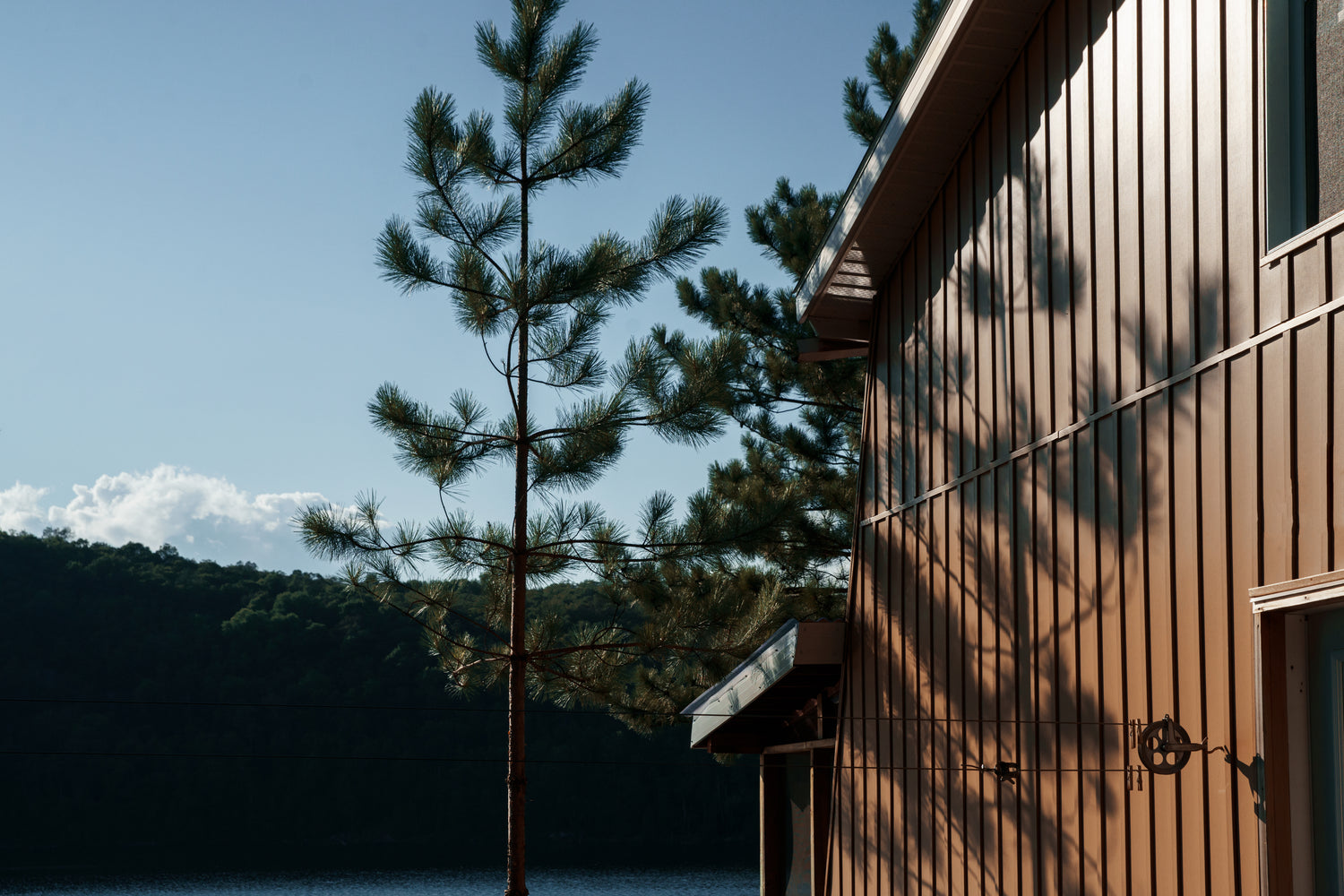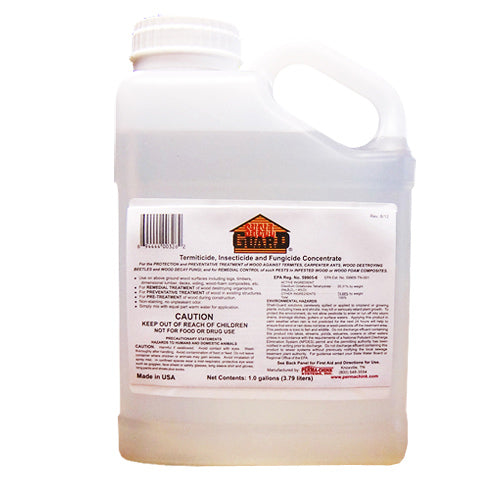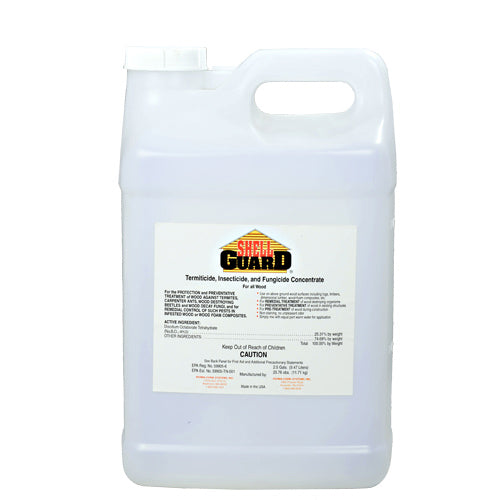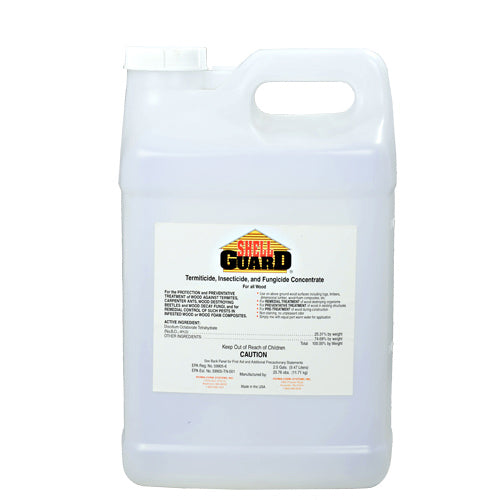Shell-Guard, Borate-Glycol Wood Preservative
Shell-Guard provides the ultimate protection against insects and wood rot for your log home. This new generation of preservative combines the well-known effectiveness of borates with a glycol system that increases the penetration into the wood to enhance the action of the borate.
Shell-Guard is colorless and odorless. The glycols used are the same type as those found in many food and skin care products.
Shell-Guard is a concentrate that is mixed with an equal amount of water, then applied to bare wood with a brush or as a spray. Once in the wood, it will kill those insects that eat wood such as wood boring beetles and termites. It also kills the types of fungi that are responsible for rot and decay. Shell-Guard makes wood toxic to wood destroying organisms!
The best thing about Shell-Guard is that one application will last the life of your home as long as the exterior surfaces are maintained with a quality, water resistant stain such as Lifeline.
Shell-Guard Available Sizes
Shell-Guard concentrate is available in 1 gallon, 2.5 gallon and 5 gallon tubs.
-
Shell-Guard, 1 Gallon Tub
Regular price £147.99 GBPRegular priceUnit price / per -
Shell-Guard, 2.5 Gallon Tub
Regular price £265.99 GBPRegular priceUnit price / per -
Shell-Guard, 5 Gallon Tub
Regular price £488.99 GBPRegular priceUnit price / per

Application Tech Tips
How To Apply Borate Treatments
Comprehensive application process for borates like Shell-Guard.Read more.
All About Wood Decay
Wood decay is a serious issue and is the most common reason logs must be replaced.Read more.
Product Information
Shell-Guard provides the ultimate protection against insects and wood rot for your log home.
Features
- A Preventative or Remedial Treatment
- Deep Penetrating
- EPA Registered
- Colorless
Resource Links
Application Temperature
40° to 90°F
Application Methods
Low pressure sprayerBrushDrill holes and inject
Surface Preparation
Clean and dryBare woodFree of mold and mildew
Special Instructions
One coat applicationRinse surface before finishing
Shelf Life
5 Years
Frequency
Permanent in wood that is kept sealed
Drying Time
1-4 weeks, depending on weather conditionsRecommend 2 weeks, then wash lightly with Log WashSurface must be dry to the touch (free of residue) before finishing
Coverage Rate
215 square feet / gallon concentrateActual coverage rate may be greater


